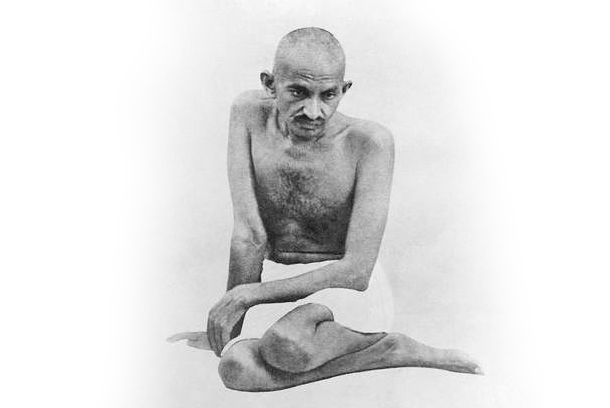<![CDATA[On September 16th 1932, Mohandas Gandhi started a hunger strike against a new British backed constitution for India. The new constitution would have given the country's lowest castes their own separate system of political representation for seventy years. Gandhi believed that this would ingrain a permanent separation between India's social classes, and unfairly limit the political representation of the 'untouchables'-the name given to members of the lowest castes. Gandhi's legacy has made him one of the most important figures for civil rights movements across the world. His brand of non-violent resistance was influential, indirectly or directly, on a host of later protests, from the US Civil Rights Movement led by Martin Luther King, to the Baltic Way protest of Soviet rule in Latvia, Lithuania and Estonia in 1989. Gandhi had been the leader of the Indian Independence Movement since the 1920s. There had been previous campaigns to make India a dominion of the Commonwealth, like Australia or Canada, but Gandhi's work stood out due to the widespread popular support he received from across Indian society. Previous campaigns, such as the Indian Home Rule movement, had only limited success because they focused too heavily on the country's urban population and members of the higher castes. Gandhi succeeded because he directed his campaign towards the rural poor and illiterate, who ultimately made up the majority of India's population. He allied himself with traditional Indian culture, living a modest life, eating simple vegetarian food, and wearing traditional clothes. Trained as a lawyer, he had already worked for the civil rights movement of indigenous South Africans, when he returned to his home country in 1915. His earliest campaigns involved organising peasants, urban labourers and farmers to protest against the excessive land tax and discrimination of British rule. His first major success in India came in 1918 with the Champaran Agitation. The farmers in the area were forced by British landlords to grow Indigo, a cash crop with falling value, which they had to sell to the planters at a fixed price. Gandhi led a series of civil disobedience campaigns in the region that ultimately forced concessions from the authorities. His continued campaigns and protests eventually saw him jailed by British authorities between 1922 and 1924. Although Gandhi withdrew from politics for much of the rest of the 1920s, we returned with a new civil disobedience campaign in 1930. Again he was briefly imprisoned, but the British government made some concessions to his demands. In 1931 a pact was signed between Gandhi and Lord Irwin, a representative of the British government. The pact saw the government agree to release all Indian political prisoners, in return for the end of the civil disobedience movement. Perhaps reflective of Britain's awareness of Gandhi's growing influence, he was also invited to Round Table Discussions in London, as a representative of the Indian Congress. Gandhi was again arrested in January 1932, as Irwin's successor Lord Willingdon took a tough stance against Indian nationalism. It was from his prison cell in September of that year that he announced his "fast until death" for the "downtrodden". Within six days the fast had succeeded and the British government accepted an agreement between members of the higher and lower castes that reversed the separation in the constitution. Gandhi's protest here highlights his appeal to all elements of Indian society. As well as campaigning for Indian independence, he also worked to counter the inequality in Indian society fostered by the caste system. Until his assassination in 1948, Gandhi continued to campaign as India made its slow progress to independence. The key to his massive popularity was his broad appeal to elements across Indian society. His civil disobedience protests succeeded because the British government could not resist the popular support for the man Indians had given the name Mahatma (meaning venerable). Going beyond just fighting British rule over India, Gandhi's work on Hindu and Muslim relations and the caste system, reveal a sincere attempt to improve the situation in the country for all Indians.]]>
Gandhi's Fast Until Death
